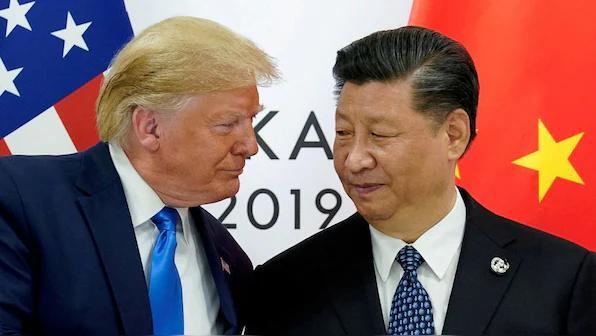
China Refuses to Join Denuclearisation Talks with US & Russia
In a recent development that has sent shockwaves around the world, China has refused to join trilateral denuclearisation talks with the United States and Russia, rejecting President Donald Trump’s call to include Beijing in future negotiations. The Chinese Foreign Ministry Spokesperson, Guo Jiakun, stated that the expectation was “neither reasonable nor realistic” due to significant disparities in nuclear capabilities between China and the US.
The announcement comes amid growing tensions between the world’s two largest economies, with President Trump and Chinese President Xi Jinping engaging in a trade war that has seen tariffs imposed on billions of dollars’ worth of goods in both directions. The refusal to participate in denuclearisation talks is seen as a significant setback in efforts to reduce global nuclear threats and promote international cooperation on this critical issue.
Background of the Situation
The US and Russia have been engaged in denuclearisation talks for several years, with the goal of reducing the number of nuclear weapons held by each country. In recent months, the talks have gained momentum, with both sides making concessions and agreeing to reduce their nuclear arsenals. The inclusion of China in these talks would be a significant step forward, as it would bring the world’s third-largest nuclear power to the negotiating table.
However, China has consistently maintained that it will not join denuclearisation talks with the US and Russia, citing significant differences in nuclear capabilities between the three countries. According to the Chinese Foreign Ministry, the expectation that China would join such talks is “neither reasonable nor realistic” due to its smaller nuclear arsenal compared to the US.
China’s Nuclear Capabilities
China has a much smaller nuclear arsenal than the US and Russia, with an estimated 280 nuclear warheads, compared to over 6,000 held by the US and over 3,000 held by Russia. This significant disparity has led China to argue that it is not feasible or realistic for it to join denuclearisation talks with the two other countries.
In addition, China has a different approach to nuclear deterrence, with a focus on maintaining a minimum nuclear deterrent rather than building up its arsenal to match that of the US and Russia. This approach is seen as more cautious and restrained, with China seeking to avoid a nuclear arms race and instead focus on building relations with other countries through diplomacy and economic cooperation.
Implications of China’s Refusal
The refusal of China to join denuclearisation talks with the US and Russia has significant implications for global nuclear security and international relations. On the one hand, it reduces the likelihood of progress being made on reducing global nuclear threats, as the US and Russia will continue to engage in bilateral talks without China’s participation.
On the other hand, China’s refusal to join denuclearisation talks may be seen as a positive development by some, as it could potentially reduce the risk of nuclear conflict. By maintaining its distance from the negotiations, China may be able to avoid being drawn into a nuclear arms race and instead focus on building relations with other countries through diplomacy and economic cooperation.
Conclusion
China’s refusal to join denuclearisation talks with the US and Russia is a significant setback in efforts to reduce global nuclear threats and promote international cooperation on this critical issue. While the Chinese Foreign Ministry has cited significant disparities in nuclear capabilities as the reason for its refusal, some argue that this is a simple excuse for China to avoid engaging in negotiations.
As the world’s two largest economies continue to engage in a trade war, the refusal of China to join denuclearisation talks is a reminder of the complexities and challenges involved in reducing global nuclear threats. Ultimately, the fate of denuclearisation talks will depend on the willingness of the US, Russia, and China to engage in meaningful dialogue and cooperation.



